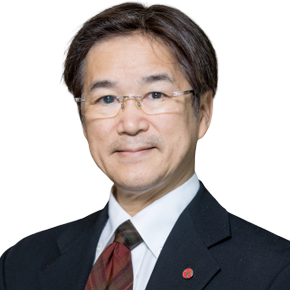
Equal Pay for Equal Work in Japan
Equal pay for equal work regulations came into effect in Japan in April 2020, and in April 2021 for small and medium-sized companies. The aim is to remove unreasonable disparities in working conditions between non-regular (part-time or fixed-term employees) and regular employees. Consequently, many companies now face the challenge of ascertaining what the legally defined “unreasonable differences” are.
Japan’s Employment System and Recent Changes in the Labour Market
In Japan, the traditional working system is long-term employment until mandatory retirement. However, this is changing due to the need for a more flexible labour market. As in many western economies, the number of non-regular (“atypical”) employees has been increasing and there is a difference between the working terms and conditions of non-regular and regular employees. This has become a serious social problem.
We can support you in the correct implementation of the new equal pay for equal work system.Kazuhiko Chiba, President & CPA, ECOVIS APO, Tokyo, Japan
The traditional wage system is based on seniority and the enhanced ability to perform job duties based on the experience of performing various jobs within a company (ability-based wage system). Thus, it is not easy to adopt the western-style system where wages are based on the specific job regardless of the length of the employment period. In Japan there is no law that directly prescribes equal pay for equal work. However, in April 2020, Article 20 of the Labour Contract Act was extended to the Part-Time and Fixed-Term Work Act. It prohibits unreasonable differences in working conditions between regular and non-regular employees and prescribes how ultimately courts and tribunals to determine whether the treatment is unreasonable, explain the Ecovis experts. The act does not preclude any differences, it merely prohibits unreasonable differences.
Summary of Five Supreme Court Cases
In October 2020, the Supreme Court ruled in five cases that non-payment of bonus and retirement allowance to fixed-term employees was not unreasonable considering their purpose, i.e. to encourage future engagement. But the Court also judged that differences in the provision sick leave, wages for new-year holiday work and family allowances would violate the law. This is because the non-regular atypical employee may have worked for many years by renewing the fixed-term employment contract and such payments are primarily aimed at improving employees’ health and welfare conditions.
What Changes in the New Wage System mean for Companies
Each case is determined on its own facts, depending on the nature and purpose of specific benefits and all the circumstances. The defendants in the cases reported above are large companies using the long-term employment system. Courts may take a different view in cases involving small and medium-sized companies. Thus, it is important to see these cases as examples only and not to assume that the judgements apply to your company. Other similar cases will need to be considered before the law is established.
For further information please contact:
Kazuhiko Chiba, President & CPA, ECOVIS APO, Tokyo, Japan
Email: kazuhiko.chiba@ecovis.jp


